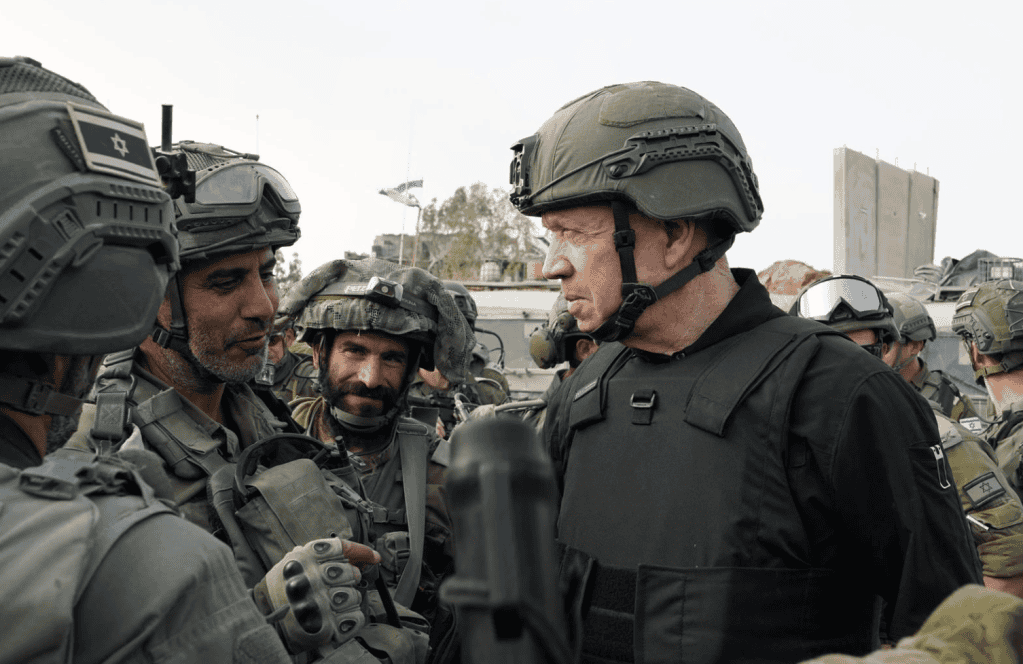
The new year has seen Israel shifting its forces in Gaza, bringing some troops home and moving others to new areas of operations in Gaza. As Hamas battalions have mostly been defeated in northern Gaza, Israel is able to return some of the reservists it called up after the Hamas attack on October 7. IDF Spokesman Rear Admiral Daniel Hagari said on December 31 that Israel was “adjusting the fighting methods to each area in Gaza, and the necessary forces to carry out the mission in the best way possible.”
Among the several Israeli units returning from Gaza are units that usually focus on training during peace time. Elements of the 14th Reserve Armored Brigade and 551st Reserve Paratroopers Brigade are also reported to be returning from Gaza, at least for now. Israel called up more than 350,000 reserves after the Hamas attack on October 7. Some of them have been stationed in northern Israel due to threats from Hezbollah. Israel used two divisions to surround Gaza City in late October and then systematically defeated Hamas battalions in neighborhoods around Gaza City.
Israel Defense Minister Yoav Gallant visited Gaza on January 2, 2024 and met with IDF Deputy Chief of the General Staff, Maj. Gen. Amir Baram. He also met with troops from Israel’s 99th Division in a meeting held on the Salah al-Din road that links northern and southern Gaza. Israel cut this route in October when it moved to isolate Gaza City and cut Hamas off from northern Gaza.
Addressing the troops, Gallant said, “You are on the route, which means that various types of operations will soon be conducted all around you. In the north we destroyed 12 Hamas battalions. This does not mean that we have eliminated all the terrorists.” He added: “There are terrorists left, several thousand out of the 15 or 18 thousand that were in this area. A large number of terrorists were eliminated, while some fled to the south. This means that in this place, tactically speaking, we will operate via firepower, some maneuvering, special operations, and if necessary, we will hold this area for a period of time. The goal is to exhaust the enemy and eliminate them.”
Gallant downplayed claims Israel was stopping altogether operations in Gaza, with his statement indicating a shift in operations. Now with less fighters, Hamas is also shifting tactics. In the last week, both the number of Israeli airstrikes in Gaza and Hamas rocket fire into Israel have been greatly reduced. In the first minutes of 2024, Hamas fired one large barrage of long-range rockets to serve as a reminder that it still has long-range rockets. Since then, it has not fired any additional long-range rockets.
I witnessed Israel’s shifting operations on a visit to Gaza’s Jabalya neighborhood with the IDF’s new multi-dimensional unit, part of the 99th Division and nicknamed the “Ghost” unit. Jabalya is now relatively quiet, most terrorists having been eliminated and civilians having fled south. There is still terrorist infrastructure to remove, the officers of the unit say. They illustrated this by having a tank and troops secure a house that they said had been used by terrorists. They also showed equipment they had found that was used by Hamas. Using new drones as well as new precision mortars, the unit was able to identify threats and also coordinate fire with other units. The use of this new technology is how Israel expected to be fighting its next war. However, the technology envisioned by Israel’s Momentum Plan, rolled out in 2020, is now facing the test of a complex battlefield with an enemy that had almost two decades to prepare.
Israel is also preparing to return civilians to communities near parts of Gaza. Israel evacuated 100 communities in October following the Hamas attack. The IDF and Israel Ministry of Defense recognize that the conflict in Gaza will go on for months or years. Evacuated civilians, most of them living in hotels, all need to return eventually. But in order to do so, they will need security solutions in place across the spectrum of civilian life, including not least of all in schools.







